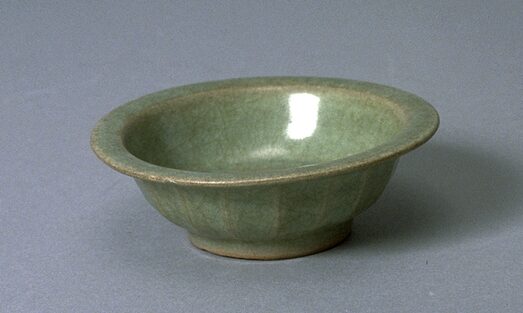Bowl
Chinese

Description
Subject Matter:
A longquan celadon bowl of the Southern Song (1127-1279) to Yuan Dynasty (1271-1368), with two fish molded in the interior. Bowls with this motif were mass-produced at the longquan kilns during this time period. Fish in Chinese is pronounced yu, which is a homonym for abundance, thus a fish motif is a wish for abundance.
Longquan is the most representative, widespread, and esteemed ware of the Southern Song dynasty (1127–1279). Production started during the Five Dynasties period (907–960) at the kilns near the market town of Longquan, where in later dynasties much of the ware was collected for shipping. Technological advances such as the development of a multi-chambered, rising kiln and the use of stacked protective clay boxes—saggars—allowed for increased production in the Southern Song. In Yuan (1279–1368) and Ming (1368–1644) times, the kilns supplied wares to domestic and overseas markets in Korea, Japan, and Southeast Asia.
Physical Description:
A small stoneware bowl on a foot ring with an everted flat rim. The exterior is carved to represent lotus petals, the interior molded with two fish. The bowl is covered in a green craqueleur celadon glaze.
Usage Rights:
If you are interested in using an image for a publication, please visit https://umma.umich.edu/request-image/ for more information and to fill out the online Image Rights and Reproductions Request Form.